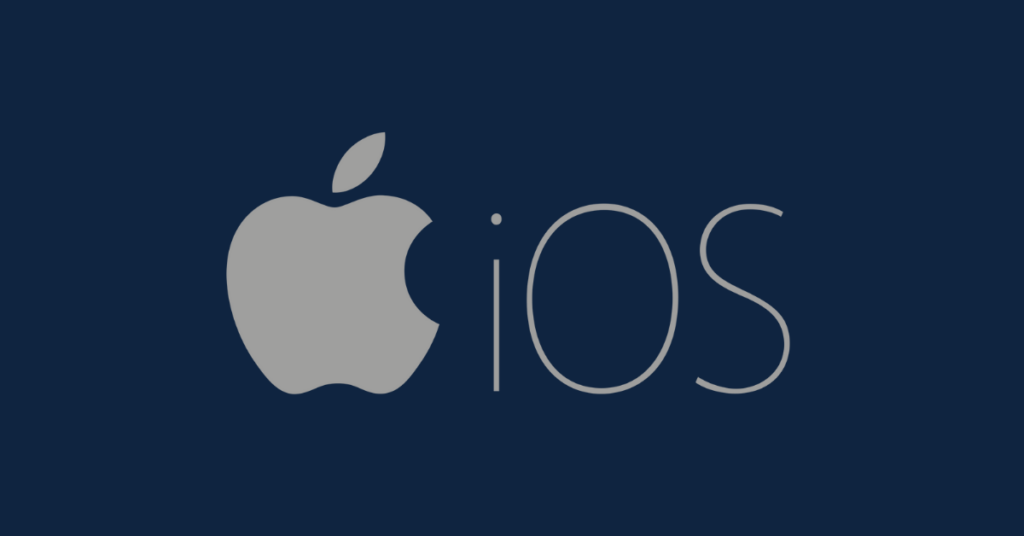Introduction
In a bid to reach a broader audience, a significant portion of businesses are turning to cross-platform app development frameworks; its market is projected to reach US$ 546 billion by 2033. Yet, even with their advantages, these frameworks may struggle to match the performance, security, and user experience of native development. For iOS solutions, native development remains the gold standard, especially for apps requiring full access to device resources and those designed to scale seamlessly for future demands. This is why many flagship apps (such as Flighty, Overcast, etc) remain iPhone-exclusive, relying on native iOS technologies and languages like Swift, Objective-C, etc., to deliver a superior user experience.
Among these, Swift stands out as the preferred choice for iOS development, offering unmatched performance, modern syntax, and deep integration with Apple’s ecosystem. Let’s explore more in this area.
Swift vs. Cross-Platform iOS Development
As per the famous Tiobe Index, an index that measures how popular a programming language is, Swift’s popularity has slightly abated in the last few years, having fallen significantly since its peak in 2018.

Many have wondered about the possible reasons behind this potential downfall. Some doubted that iOS developers are shifting to Dart or Objective-C, but that’s most likely not true. For instance, Dart usage is only around 0.5%, so clearly developers haven’t shifted to it.
Another possibility could be a decline in the demand for iOS solutions, but even that is far from reality.
The most likely explanation is the visible shift toward cross-platform development technologies like Flutter and React Native. These frameworks emphasize “write once, run anywhere” development, which appeals to businesses wanting to target multiple platforms simultaneously. However, we should not forget that cross-platform frameworks come with their own set of limitations, such as reduced performance for resource-intensive apps and challenges in achieving a truly native user experience.
So, it actually depends on your specific requirements. We now know why cross-platform iOS development has been gaining popularity, let’s dive into why Swift continues to be a preferred native iOS development technology.
Read: Digital Decluttering for a Smoother Tech Experience
Why is Swift Still Ideal for iPhone App Development?
Swift offers unique features and quirks that simplify iOS app development, making it a preferred language for creating high-quality and efficient iPhone applications. Here’s why you should leverage Swift for iOS apps:
- Modern Syntax and Readability
Swift’s concise and easy-to-read syntax reduces development time and errors. This simplicity improves code maintainability and collaboration, making Swift ideal for scalable iOS applications.
- Safety Features for Error-Free Code
To ensure your iOS apps are highly secure, Swift has several built-in features that help developers write clean, crash-resistant code while reducing runtime errors. Here are the key safety mechanisms Swift offers:
- Optionals for Handling Null Values: Swift offers “optionals” to handle the absence of a value explicitly, preventing unexpected crashes caused by nil values.
- Type Safety: Swift enforces strict type-checking during compilation, preventing developers from accidentally assigning incompatible data types
- Error Handling with do-catch: It also provides a structured approach to define, throw, and catch errors gracefully using the do-catch block.
- Memory Safety: Swift iOS development also benefits from reduced memory access conflicts by ensuring that variables are accessed safely. For example, it avoids simultaneous writes to a memory location, eliminating certain runtime crashes.
- Boundary Checks for Arrays: It performs automatic boundary checks for collections like arrays, preventing out-of-bounds access and potential crashes.
- Integration with the Entire Apple Ecosystem
One of the biggest reasons Swift is ideal for iPhone app development is its integration with Apple’s extensive ecosystem. Designed specifically for Apple platforms, Swift naturally connects with the tools, frameworks, and APIs that make iOS app development both efficient and enjoyable.
- SwiftUI, Apple’s modern UI framework, pairs beautifully with Swift to help developers create stunning, responsive interfaces with minimal code.
- It also integrates with Core Data, Apple’s framework for managing app data.
- Combine, Apple’s framework for handling asynchronous events, fits naturally with Swift’s modern programming model.
- Swift can readily interact with Apple’s powerful APIs, including ARKit for augmented reality, CoreML for machine learning, and HealthKit for fitness tracking.
- Efficient Memory Management
Another advantage of using Swift for iOS apps is its ability to manage memory automatically using Automatic Reference Counting (ARC). It keeps track of which parts of your code are using memory and frees up that memory when it’s no longer needed.
Note: While ARC works effortlessly most of the time, Swift developers must be mindful of situations where two objects keep each other alive indefinitely.
The Advantages of Using Swift for iOS Apps
- Faster Development, Lower Costs
Swift’s modern and concise syntax allows developers to write code faster with fewer errors. This reduces development timelines and costs without sacrificing quality, making it ideal for businesses aiming for scalable iOS applications.
Result: Quicker time-to-market and reduced development expenses.
- Enhanced iOS App Security
With over 82% of iOS apps tracking private user data, security is critical. Swift’s built-in features like Optionals, Type Safety, and structured error handling help developers minimize vulnerable endpoints and prevent runtime crashes. This ensures your app is reliable and secure.
Result: Lower risk of data breaches and stronger user trust.
- High-Performance Applications
Built on LLVM (Low-Level Virtual Machine), Swift translates code into optimized machine instructions, ensuring fast and efficient app performance. The introduction of structured concurrency with async/await in Swift 5.5 makes it ideal for data-heavy, real-time applications like enterprise tools or high-performance gaming apps.
Result: Faster, more responsive apps that boost user engagement and satisfaction.
- Reduced Maintenance Costs
Swift’s safety-focused design and memory management reduce bugs and crashes, minimizing the need for extensive post-launch maintenance. A more stable app ensures happier users and lower operating expenses.
Result: Lower maintenance costs and sustained app performance.
- Future-Proof Investments
Apple Swift development ensures compatibility with the latest iOS versions and devices. This future-proof approach saves businesses from frequent redevelopment, keeping apps relevant and functional for years.
Result: Long-term cost savings and a durable return on investment.
Comparing Swift with Other Languages for iOS Development
Let’s see how iOS app development with Swift wins over other programming languages and frameworks.
| Parameter | Swift | Objective-C | Python | Kotlin Multiplatform | C#/.NET |
| Development Speed | Fast: concise syntax and safety features reduce debugging time. | Slower due to verbose syntax and outdated conventions. | Fast for prototyping; slower for full-scale apps. | Moderate: shared codebase speeds up cross-platform development. | Moderate: adapting .NET libraries for iOS adds complexity. |
| Performance | High: LLVM-optimized, Swift concurrency enhances responsiveness. | Decent: slower compared to Swift due to older compiler tech. | Low: not optimized for mobile environments. | Moderate: performance depends on JVM runtime. | High: robust runtime and memory management. |
| Ease of Hiring Skilled Resources | Moderate: growing popularity means a steady pool of skilled Swift developers. | Low: fewer Objective-C developers due to its declining use. | High: Python is widely taught and used. | Moderate: niche skillset required for KMP developers. | Moderate availability of C# developers globally. |
| Cost Factor | Moderate: however faster development reduces costs but requires iOS specialization. | Higher: slower development leads to increased costs. | Low for prototyping but high for full apps due to limitations. | Moderate: shared code reduces long-term costs. | Moderate: depends on project size and complexity. |
| Scalability | High: Swift’s safety features and performance make it ideal for growing apps. | Moderate: lacks modern scalability features like generics in Swift. | Low: Python struggles with performance at scale. | High: great for scaling cross-platform applications. | High: enterprise-level scalability with .NET support. |
| Integration with Apple Ecosystem | Excellent: designed to work seamlessly with Apple tools like SwiftUI and Combine. | Strong: integrates with most Apple APIs but lacks modern frameworks. | Limited: relies on third-party libraries for native iOS features. | Moderate: works but lacks native-level integration. | Strong: integrates well but focuses on multi-platform. |
Swift is the top choice for high-performance, scalable iOS apps, offering seamless integration with Apple’s ecosystem and long-term ROI. Other languages like Objective-C, Python, Kotlin, and C# serve niche use cases but lack Swift’s native optimization and efficiency for iOS development.
Challenges in Swift iOS Development
While choosing Swift for scalable iOS applications offers a modest range of benefits, it also comes with a few challenges.
- Swift is primarily designed for Apple’s ecosystem, limiting its applicability for cross-platform development and necessitating alternative solutions for non-Apple platforms.
- It offers limited backward compatibility. On the one hand, frequent updates help keep your apps current with the latest technologies; on the other, they can lead to compatibility issues with older iOS versions.
- Managing third-party libraries in Swift can be complex, especially when dealing with multiple package managers like CocoaPods and Swift Package Manager.
- It’s still not a top contender when it comes to interoperability. For instance, interfacing Swift with Objective-C or C can introduce performance overhead and complexity.
- Even though Xcode provides robust support for Swift, developers may encounter limitations or bugs.
- Swift’s concurrency model, introduced in recent versions, adds complexity to multithreaded programming.
Working around these challenges requires a deep understanding of this programming language. Moreover, as Swift is frequently updated, you must stay current with everything new to maximize its potential for your iOS project.
Why Skilled Developers Make a Difference
If you have an iOS developers’ team, you’ll likely not face many of these challenges. However, if you don’t, you might have to seek professional help, either by hiring iOS developers who can code in Swift or by outsourcing your project to a company offering iOS development services. With iOS expertise, you get:
- Efficient Problem Solving: Anticipate and address issues like dependency management, backward compatibility, and performance optimization.
- Maximized App Potential: Deep knowledge of Swift’s latest features and the entire Apple ecosystem.
- Better QA: Secure, stable, and high-performing apps with clean, maintainable code that adheres to best practices.
Both these approaches minimize risk, save time, and provide access to a broader pool of expertise, often at a lower cost than building an in-house team.
What’s Next for Swift in iOS App Development?
While cross-platform tools are growing, Swift continues to deliver where it counts—performance, precision, and integration with the entire Apple ecosystem.
For businesses aiming to create standout apps, whether through expert in-house iOS developers or by outsourcing to companies offering iOS development services, Swift ensures quality, scalability, and a strong return on investment. With Swift, your app will be designed to thrive in the future.
Author’s Bio:
Nathan Smith is a Technical Writer at Techno Score with extensive knowledge in software documentation, API guides, and user experience. Nathan’s expertise covers Application Development, DevOps, and Staff Augmentation (Hire mobile app developers, hire WordPress developers, and hire full stack developers etc.).



